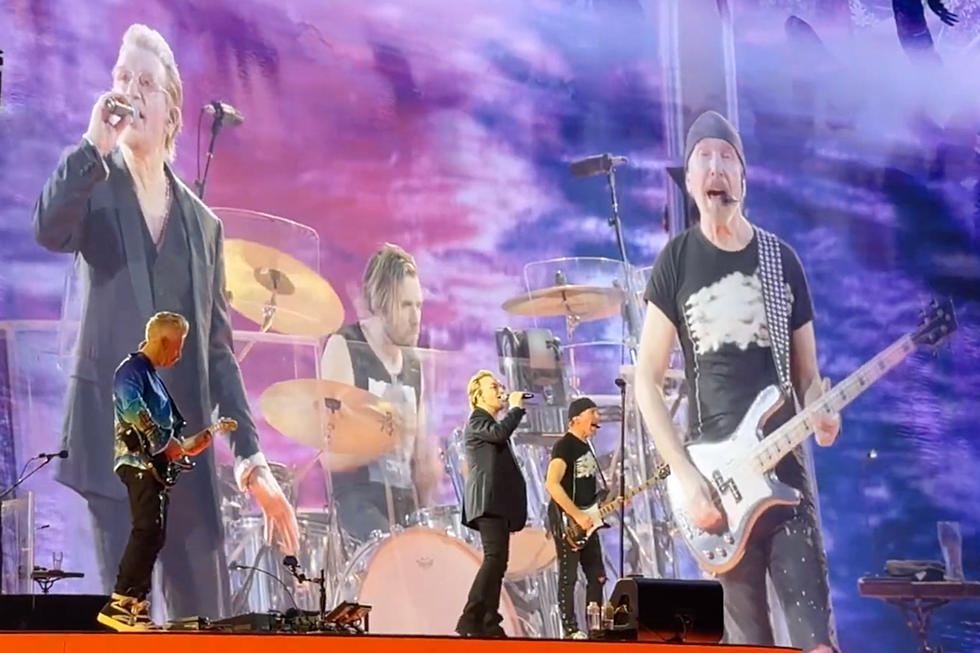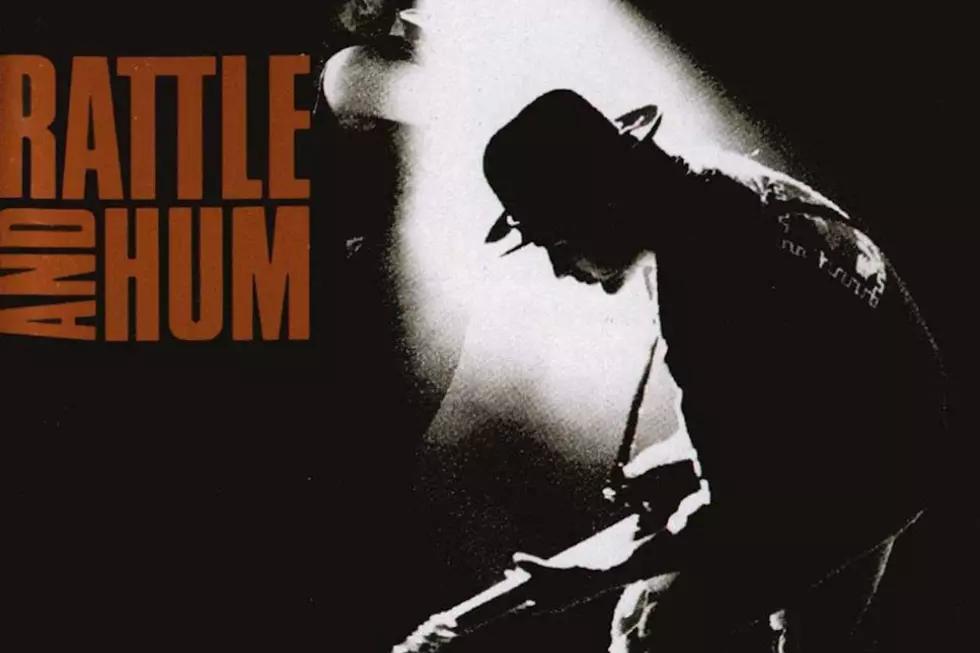
How U2 Came Into Their Own With ‘The Unforgettable Fire’
U2's fourth album arrived just a little more than a year and a half after its punky predecessor War became a surprise platinum-selling hit. On that earlier release, simple but effective production from Steve Lillywhite buoyed future stadium rockers like "Sunday Bloody Sunday" and "New Year's Day." War would top the U.K. charts, while reaching No. 12 in the U.S.
But The Unforgettable Fire didn't build on that stripped-back, almost primitive sound. Instead, the band challenged itself to find something beyond the prickly rawness that was already making U2 an international phenomenon. So, they turned to ambient music pioneer Brian Eno and his budding protege Daniel Lanois, sparking an unlikely collaboration that would ultimately stretch over six albums.
It could be argued that The Unforgettable Fire, released on Oct. 1, 1984, is their big bang – the moment when U2's dizzying ambitions finally crashed into a real opportunity to make something that sounded uniquely their own. A group that always seemed to record as if playing live onstage, with few embellishments, was suddenly traversing a much more expansive soundscape.
They clearly enjoyed the new vista. Bono's always impressionistic lyrics were sharper and more resonant, highlighted by lines like "faces ploughed like fields that once gave no resistance" and, in his final requiem for Martin Luther King Jr., "sleep, sleep tonight – and may your dreams be realized." The Edge's playing was also more memorably atmospheric, and the rhythm section's nimble symmetry more engaging.
Put simply, they'd never sounded like this before, and they'd never sound the same again. The Unforgettable Fire began a run of nine straight albums that would go at least platinum.
Listen to U2 Perform 'Pride (In The Name Of Love)'
"A Sort of Homecoming," the opener, most directly recalls the feel of U2's first three albums, providing a bridge to where they were quickly heading. "Pride (In the Name of Love)" illustrated their ability to transform that flinty attitude into something that would connect across generations, even as the Edge unleashed a delay-pedal sound that would quickly become his trademark. (Of course, the problem with history – versus the abstractions with which Bono typically worked – is its fact-based certainties. He famously got the time of King's assassination wrong.)
If "Indian Summer Sky" and "Wire" leaped forward with breakneck speed, the title track and the closing "M.L.K." showcased a stirring new sense of space and proportion. Then there's "Bad," which, in the Live Aid era, was every bit the anthem that "Two Hearts Beat as One" had been, but with a much grander sweep.
Not every moment worked. "Elvis Presley and America" hints at the sometimes over-the-top myth-making to come, while the throwaway instrument "4th of July" seemed to owe far more to Brian Eno's imagination than to anyone in U2. Ultimately, however, U2's many successes on The Unforgettable Fire overpower the occasional failures.
With a few tweaks, they'd go on to record the best album of their career with The Joshua Tree. In the meantime, this is the sound of U2 finding themselves, during a moment of bravado and emotion that – though repeated perhaps to the point of numbing sameness in the years to come – changed everything.
U2 Albums Ranked
More From Ultimate Classic Rock









